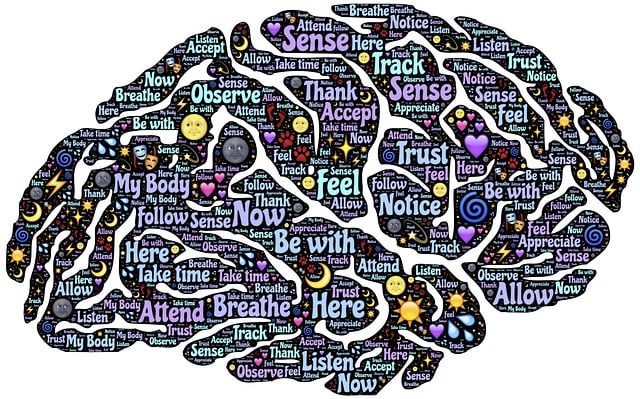Specialized mental health approaches like play therapy and biofeedback are crucial for young children due to their unique communication challenges. Biofeedback techniques enhance self-awareness, teach stress management, and improve emotional intelligence, building resilience from a young age. A comprehensive coaching program integrating these elements ensures tailored mental wellness support, fostering adaptability in navigating life's challenges. Early interventions with biofeedback, coupled with creative therapy sessions, set the foundation for better mental health advocacy and policy analysis in adulthood. Public awareness campaigns can further encourage families to adopt this innovative therapy.
Mental wellness coaching programs are gaining traction as essential tools for supporting young children’s emotional well-being. This article explores key aspects of developing effective mental health initiatives tailored for kids, focusing on biofeedback techniques and structured therapy sessions. We delve into the unique mental health needs of young individuals, emphasizing the importance of early intervention. By understanding how biofeedback can be integrated, therapists can create engaging environments, fostering resilience and coping strategies. Each section guides professionals in designing, implementing, and measuring successful mental wellness coaching for optimal child outcomes.
- Understanding Young Children's Mental Health Needs
- The Role of Biofeedback in Coaching Programs
- Designing Effective Therapy Sessions for Kids
- Implementing and Measuring Success in Mental Wellness Coaching
Understanding Young Children's Mental Health Needs

Young children’s mental health needs are distinct and require specialized approaches. Unlike adults, they may not verbalize their emotions or experiences as clearly, making it crucial for coaches and therapists to employ creative strategies such as play therapy and art-based interventions. These methods facilitate communication, helping young clients express their feelings and work through challenges in a safe, supportive environment.
Integrating techniques like biofeedback into coaching programs can be particularly beneficial. Biofeedback teaches children conscious control over involuntary bodily functions, fostering self-awareness and empowering them to manage stress and anxiety. Additionally, focusing on resilience building and empathy-building strategies empowers young individuals to navigate life’s challenges with greater adaptability and emotional intelligence. A comprehensive approach that includes these elements ensures a robust foundation for mental wellness coaching tailored to the unique needs of children.
The Role of Biofeedback in Coaching Programs

Biofeedback stands out as a transformative tool within mental wellness coaching programs, especially for young children. By providing them with concrete, real-time data about their physiological responses, biofeedback empowers kids to understand and gain control over their emotional states. This early intervention can be instrumental in developing effective mood management strategies, a skill that’s not only crucial for navigating childhood challenges but also sets the stage for better mental health policy analysis and advocacy later in life.
Integrating biofeedback into coaching programs complements traditional therapy approaches. It fosters self-awareness and promotes proactive coping mechanisms. Furthermore, raising public awareness about biofeedback through campaigns development can demystify its benefits, encouraging more families to seek out this innovative therapy as part of their mental health strategies.
Designing Effective Therapy Sessions for Kids

Designing therapy sessions tailored for young children requires a unique and creative approach to ensure effectiveness and engagement. When it comes to helping kids manage their mental wellness, incorporating techniques like biofeedback can be immensely beneficial. These interactive methods allow therapists to guide children in becoming aware of their bodily responses, teaching them self-regulation skills essential for emotional control. By creating a safe and playful environment, therapists facilitate the process of exploring and understanding emotions, which is crucial for developing healthy coping mechanisms.
The key lies in adapting traditional therapy practices to suit the developmental stage of young minds. Incorporating activities that promote mindfulness, relaxation, and self-expression helps children develop their self-care routine from a young age, fostering better mental health. This can include storytelling sessions, art therapy, or even simple breathing exercises, all designed to help them process emotions and reduce stress. Trauma support services tailored for kids often emphasize the importance of these early interventions, as they lay the foundation for building resilience and coping strategies that will serve them throughout their lives.
Implementing and Measuring Success in Mental Wellness Coaching

Implementing successful mental wellness coaching programs requires a multifaceted approach. One key strategy is integrating evidence-based techniques like therapy for young children and biofeedback to address specific mental health needs. These methods not only enhance self-esteem improvement but also equip individuals with coping mechanisms, fostering resilience and emotional regulation.
Effective measurement of success involves tracking participant progress through regular assessments and qualitative feedback. Community outreach program implementation can expand access to these services, reaching a broader audience. Additionally, empathy building strategies should be incorporated into coaching sessions, as they promote understanding and strengthen the therapeutic bond, contributing to overall program effectiveness.
Mental wellness coaching programs focused on young children’s unique mental health needs have immense potential. By integrating biofeedback techniques into sessions, coaches can provide effective therapy tailored to each child’s experience. Through careful design and structured measurement of success, these programs empower kids with tools for emotional well-being, offering a promising path toward navigating and overcoming mental health challenges at an early age.








